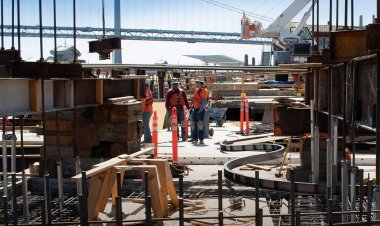11 Types of Real Estate Jobs to Explore
The real estate economy is a world of its own with the potential for great economic revenue in Africa and globally.

The real estate industry has multiple job opportunities and job descriptions. To put them in perspective, they are endless. The real estate economy is a world of its own with the potential for great economic revenue in Africa and globally.
These real estate jobs and opportunities suit one’s skills and preferences depending on their real estate career choice. The real estate industry highlights renting purchase and sale of property, residential and commercial properties. These jobs include the following:
1. Leasing consultant
A leasing consultant is the “bridge” between potential renters and the available properties on offer. The consultant gives detailed knowledge of lease terms and what rental applications entail. In the same vein, consultants schedule property maintenance.
2. Leasing agent
Property owners and tenants are represented in the real estate business by the leasing agents. Additionally, the leasing agent ensures the property tour has been done exclusively and to “perfection”. More so, the lease agents’ work is to ascertain that the lease documents are legal.
3. Leasing Manager
The job description of the leasing manager is cut across several fronts. These include managing property, rental homes, and apartments. Additionally, the leasing manager markets the property effectively to ensure the occupancy rate never decreases. In addition to the mentioned duties, the leasing manager will also show available units and maintain rental spaces to the highest professional standards that suit guests living in the building.
4. Foreclosure Specialist
Foreclosure is a legal process that allows lenders to recover the amount owed on a defaulted loan by taking ownership of and selling the mortgaged property. The duties of a foreclosure specialist include reviewing inspection reports, insurance policies, bank statements, and payment histories.
This in the long run helps the homeowners ascertain their options in determining whether the home will be sold or if the restructured loans will prevent foreclosure from being the grim reality.
5. Property Manager
The property manager oversees the “operations” of the rental property on behalf of the property owner. He or she also maintains the property. It is important for the property manager to have due diligence in determining the “correct rental rate” as per the property market value and potential property residents.
The property manager does work round the clock in ensuring repairs; renovation, refurbishments, and maintenance are done to the correct building standards of the builders’ association.
6. Title Examiner
The title examiner works diligently to ensure the property documents are legal. Furthermore, the title examiner has some knowledge of property law.
The title examiner’s main work is to authenticate and verify all title documents as being legitimate so that the property is sold to the new owner legitimately without any corruption dealings undermining the legality of the property sale.
7. Home Inspector
A home inspector is very important to the property sale process and also to any potential investor of a property either residential or commercial. The home inspector highlights all issues of repair that need to be fixed immediately before the purchase of property takes place.
The property’s area of repair might include and is not limited to electrical, plumbing, roofing, water systems, flooring, ceiling, and the exterior of the home. The home inspector's works are efficient and crucial in advising the homeowner on how to improve and care for the property in the best way possible.
8. Real Estate Manager
The real estate manager sells the property in question on behalf of the property owners. Other duties of the real estate manager include marketing the property, underlining what the terms of property purchase include, negotiating property agreements, and helping clients understand why “property A is better for purchase than property B”.
9. Commercial Property Manager
As the word commercial states, a commercial property manager oversees every operation of the owners of commercial properties. These include fields of real estate such as malls, office units, and commercial rentals. This manager also collects the rent.
10. Property Developer
The property developer purchases the property. In addition, they ensure the property development is to the correct and professional building standards.
It is important to note that the property developer obtains a building permit prior to property development and construction taking place. Finally, the property developer renovates real estate projects and resells them to potential investors or buyers.
11. Real estate Agent
A real estate agent is like a conveyor belt ensuring that the purchase of property continues seamlessly while meeting potential buyers of property. The agent advises the buyer on which property is “perfect for purchase” in meeting their commercial, rental, or real estate needs. Real estate agents guarantee that property listing is done legitimately.
As we have seen, the real estate industry is a huge pool of fish with countless fish to catch, eat or probably “make the fish itself”. The path is yours in choosing which field of real estate one will venture into. Choose wisely today.
If you have a real estate press release or any other information that you would like featured on African Real Estate Blog Post do reach out to us via email at [email protected]
































